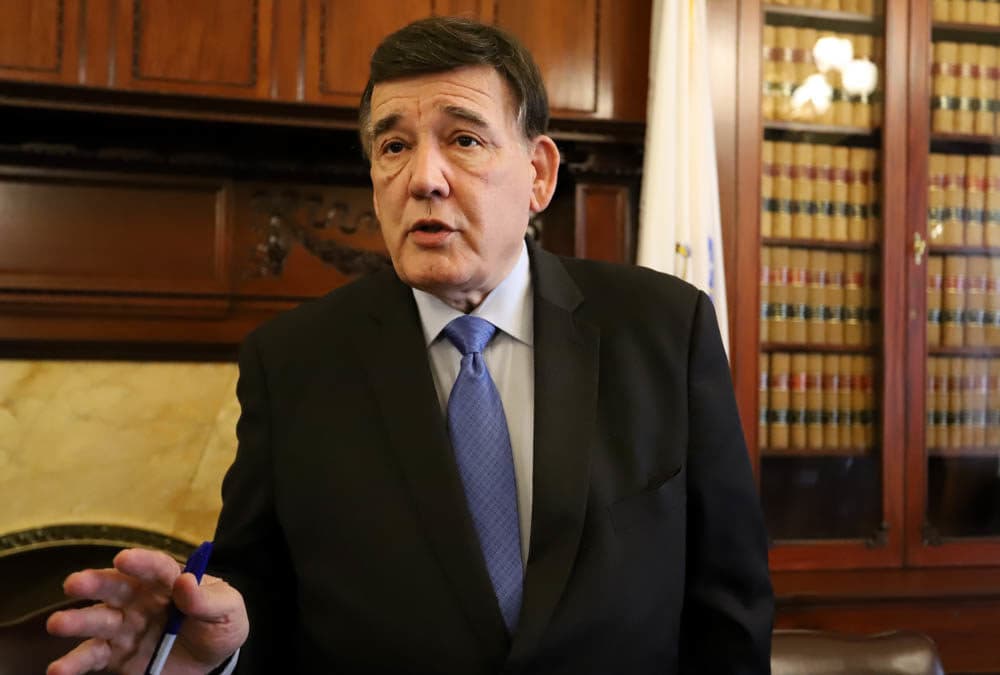Advertisement
Mass. Senator Prods Climate Bill Negotiators With New Bill

A new bill was filed in the Legislature this week aimed at curbing emissions and renewing the state's focus on combating climate change.
Hoping to deliver "a wake-up call" and highlight the urgency of the issue, Sen. Marc Pacheco filed the bill, combining what he viewed as the best parts of the climate policy bills that six other lawmakers have been trying to reconcile since August.
The Senate dean, who chairs its Committee on Global Warming and Climate Change, filed what is essentially his own vision for a conference committee report Wednesday and said he wanted to make sure Beacon Hill is "not losing sight of the urgent need to reduce greenhouse gas emissions."
The late-session bill, which was not referred to a committee when the Senate met Thursday, would establish a requirement to get to net zero emissions by 2050 with interim limits every five years, increase the state's renewable portfolio standard that governs the amount of clean energy utilities must purchase, codify environmental justice policy terms, increase the state's offshore wind authorization to 6 gigawatts by 2035, and establish a goal that 100% of electricity come from renewable sources by 2035.
"What we need is the political will to take urgent action and pass bold climate legislation here in the Commonwealth," Pacheco said.
Eighty-one state lawmakers rang in 2019 and the start of the current two-year legislative session by resolving to pursue a suite of climate policies, including moving the state to net-zero carbon emissions by 2050. The year brought youth climate strikes and clean energy pushes from municipal and business leaders but not, ultimately, completed climate legislation.
At the start of 2020, Gov. Charlie Baker, House Speaker Robert DeLeo and Senate President Karen Spilka all declared their support for net-zero carbon emissions by 2050 on the same day in January. But that shared goal, one that climate activists have spent years clamoring for, still has not been carved into statutory stone.
The Senate overwhelmingly passed a package of climate bills in January that called for net-zero carbon emissions by 2050, and set deadlines for the state to impose carbon-pricing mechanisms for transportation, commercial buildings and homes. The House, which had earlier passed a $1.3 billion climate adaptation bill, in July passed its response to the main Senate proposal, addressing the 2050 emissions reduction roadmap, solar energy net metering, grid modernization, workforce development, energy efficiency, and municipal electric and light plant clean energy targets. A conference committee has been trying to iron out the differences in those bills since early August.
When the Senate passed its climate policy bills in January, it did not authorize additional offshore wind procurement but the House included authorization for additional offshore wind power in its bill. The Senate, though, adopted a Pacheco amendment to its economic development bill to direct the executive branch to procure another 2,800 MW of offshore wind power by 2035, which would bring the state's total authorization to 6 gigawatts.
Pacheco suggested this week that the six lawmakers negotiating the economic development compromise report the offshore wind language out on its own to allow the climate change conference committee to fold it into its own talks.
"Otherwise, the legislature would be effectively adopting the updated net zero emissions reduction requirement while failing to provide the administrative tools needed to meet that new requirement," he said. "We would be making a tragic mistake not to seize the opportunity facing us at this moment to regain our leadership in offshore wind implementation."
The Baker administration's 2050 Decarbonization Roadmap and the 2030 Clean Energy and Climate Plan are both expected to be released this month. The 2050 Roadmap will be used to set a 2030 emissions reduction target by the end of this year.